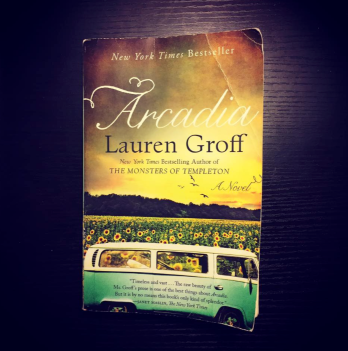3/5 Stars.
Oh, Lauren Groff. Your purple prose. Your absence of quotation marks. Your writing is actually quite beautiful, but that isn’t good enough for you, apparently. What does it mean for a girl to have a “sweet cupcake face” anyway?
I went back and forth between feeling like this book was a total slog and finding it utterly compelling. This is my second Lauren Groff book. With Fates and Furies, I loathed the first half and loved the second half. With Arcadia, my emotions didn’t reach such extremes, but my experience was the exact opposite: I enjoyed the second half much more than the first half.
Arcadia presents us with the life of Bit, born in an idyllic commune in the middle of the woods in the 1970s. It follows him from childhood through adulthood, as he is eventually forced to assimilate in the outside world.
He falls in love, experiences life-altering tragedy, has a child of his own and ultimately finds himself returning to the commune years later, as if it were part of his destiny.
Arcadia is about a utopian dream—at its best, its worst and everything in between. It’s about life, and what matters most within it: family, love, community. It’s a complete, fulfilling story with remarkable beauty and depth if you’re willing to endure Groff’s ostentatious prose.

